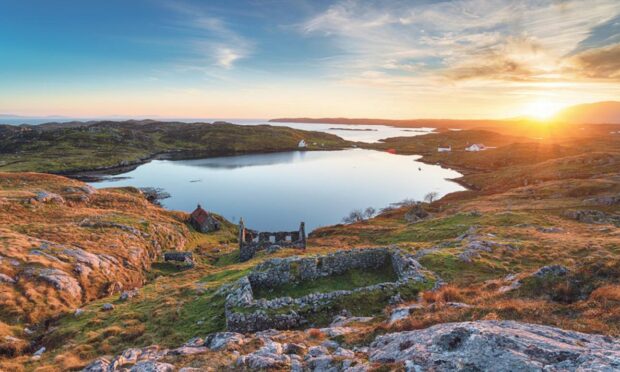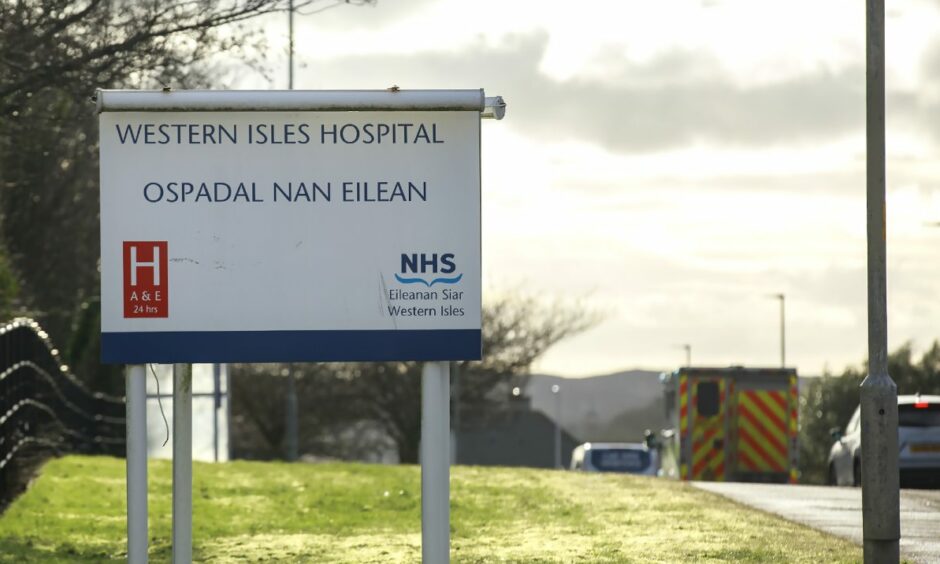The loss of younger people from the Outer Hebrides will leave islands short of carers for growing numbers of vulnerable residents.
A report has spelled out the stark impact of a predicted fall in young islanders and rise in those of retirement age.
It highlights the need to attract and retain people of working age and their children to provide a sustainable workforce and community.
The workforce and demographic report is by the Western Isles Integrated Joint Board (IJB), a partnership of NHS Western Isles, Comhairle nan Eilean Siar and third and independent sector care providers.
What is the problem?
It says the islands are starting to see the impact of the loss of younger, child-bearing women with a decline in births and rise in deaths.
Figures from the council show the islands expect a 6% drop in population by 2028, one of the biggest decreases in Scotland.
Working age population is set to fall by 6% by 2028.
At the same time, the number of over 75s is set to rise by 25%.
“The population changes will result in a year-on-year reduction in the available workforce to nurse, care and attend to the most vulnerable of people whose numbers are increasing year on year”, the report says.
“The IJB is already feeling the effect of the changes in demography with high levels of vacancies in social care workforce and nursing workforce.”
Populations of Barra, Uists and Benbecula have halved since 1901 and dropped by 65% in Harris.
Barra’s population is forecast to fall from 1,280 now to 1,209 by 2030.
Harris is also expected to drop from 1,842 to 1,659 and Uists and Benbecula from 4,740 to 4,428.
The report says the overall population has seen only a gradual decline from 2005, and in some years a small increase, but due to an increase in 55–59-year-olds.
“However, what has occurred within that period, which the Islands are now starting to feel the impact of, is that the young have migrated, and we are now seeing a sizable decline in births due to the loss of childbearing women, together with the increasing deaths due to the now aging population.
“The islands are not replenishing their loss of population through an increase in births, and the islands are in that position where de-population will now start increasing faster year on year.”
Pandemic changes may not be good for islands
It says while the pandemic has brought about changes to how people work, it may not be positive for the islands.
“Net inward migration may not result in an increase in available workforce as people are able to take their job with them or are maybe already at retirement age.
“Opposite to that, there is a potential growth in the existing population to work for off island companies and the public sector but remain on island.
“It is also worth noting that remote working from off the island could decrease the economic benefit for the local economy as does the use of short term locums to fill local posts.”
The report say it is becoming increasingly difficult to recruit, not just to specialised posts, but also to unskilled and semi-skilled posts.
“Due to the predominance of our female workforce, we are in effect halving our available employment pool with which we are competing with many other sectors on the island; tourist industry, catering, supermarkets, fish factories for example.”
It says there are many potential operational and financial risks faced in planning for future health and social services for the islands.
“Services cannot be provided to clients. Homecare specifically is at risk of service break-down, with high levels of assessed clients not receiving care and unassessed clients who also may need care.”
No quick fixes
Islands MSP Alasdair Allan said the report is a stark warning about the risk of depopulation.
“There are no easy answers or quick fixes, and much good work is already being done by the Scottish Government and others.
“The risks of the current situation can be seen, however, in many communities where we can already see the immense strain on care services and businesses who simply can’t recruit enough staff to get by.”
He said the islands has been contending with depopulation for generations.
“However, in some places it is reaching a critical stage where the very viability of many communities is now under threat.
“We desperately need to ensure more working-age people can be retained or attracted, and that will mean looking at many issues, such as the way the rural housing market operates.”
Are you interested in more exclusive and breaking Highland and Islands news from the P&J? If so, why not join our dedicated Facebook page HERE


Conversation